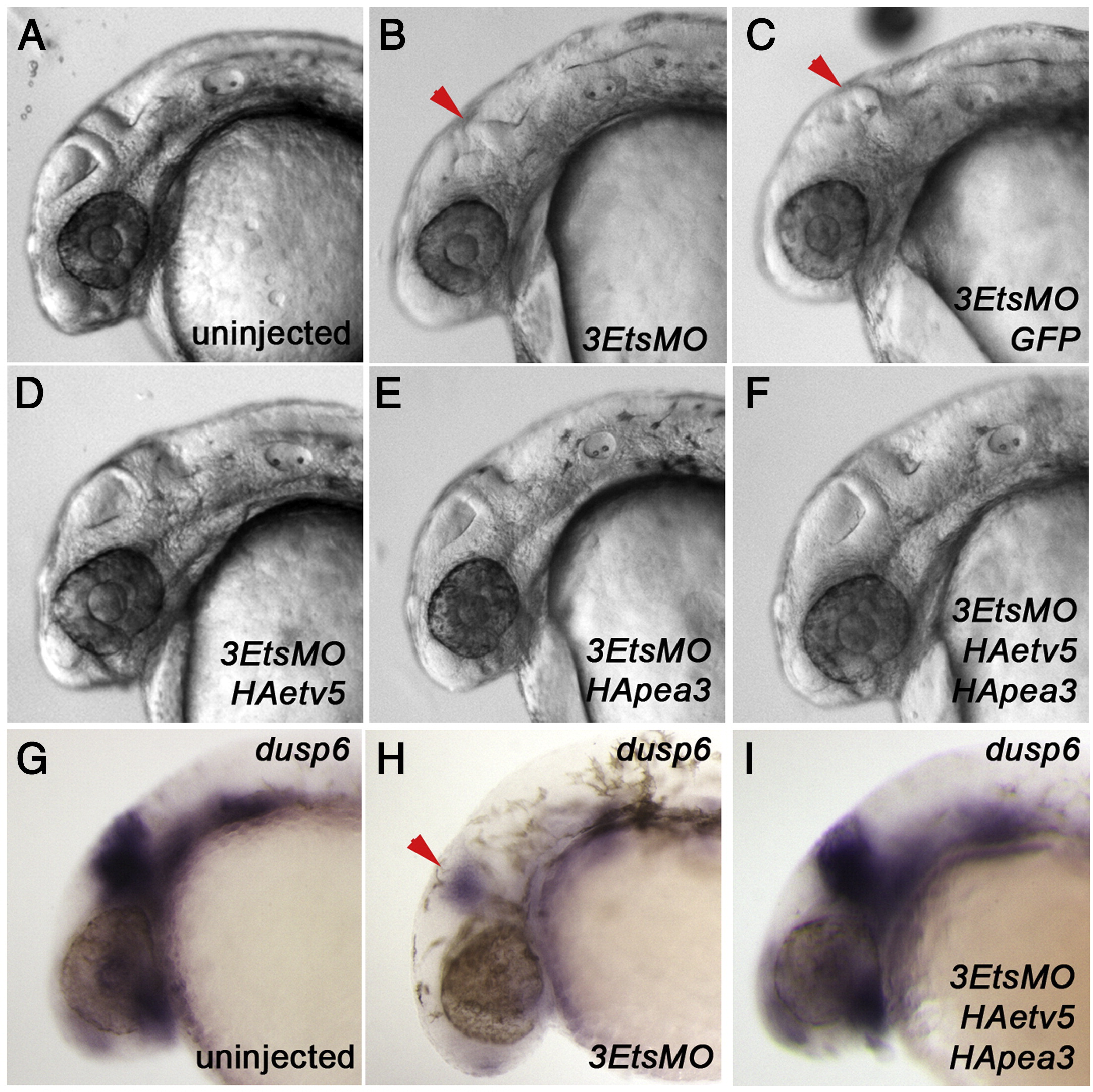Fig. 2 The Pea3 ETS factors perform redundant functions and are required for mid–hindbrain boundary (MHB) formation. (A–I) Lateral views of 28hpf embryos. Injection of antisense morpholinos targeting pea3, erm and etv5 (3EtsMO) resulted in MHB defects (B) as compared to the Control scrambled morpholino (A). 3EtsMO-induced MHB defects can be rescued by co-injection of HAetv5 or HApea3 mRNA (D–F) but not by GFP mRNA (C). Expression of dusp6 is diminished in 3EtsMO-injected embryos (H). Co-injection of HAetv5 and HApea3 rescued dusp6 expression (I). Red arrowhead marks loss of MHB in MO-injected embryos.
Reprinted from Developmental Biology, 342(1), Znosko, W.A., Yu, S., Thomas, K., Molina, G.A., Li, C., Tsang, W., Dawid, I.B., Moon, A.M., and Tsang, M., Overlapping functions of Pea3 ETS transcription factors in FGF signaling during zebrafish development, 11-25, Copyright (2010) with permission from Elsevier. Full text @ Dev. Biol.

